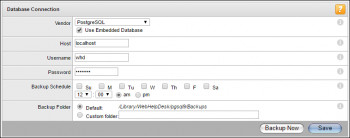Remmina is a free and open-source remote desktop client that allows users to access remote machines from a distance. The application is coded in GTK+. Multiple networking protocols are supported by Remmina such as RDP, SSH, XDMCP, WWW, VNC, NX, and SPICE.
Here at Ibmi Media, we shall look into the installation process of Remmina on Manjaro Linux.
If you want to learn more about different, free, and open source remote desktop tools for Linux simply visit: https://linuxapt.com/blog/1398-best-remote-monitoring-management-software
Steps to install Remmina on our Manjaro system
1. Install snapd on the system
To begin, we will install the application using snap. For that, we first need to have snapd installed on our system. Snaps are containerized software packages that are very easy to install and safe to run. They also update automatically. To install snapd, we will run the following command:
$ sudo pacman -S snapd2. Enable snapd.socket on the system
Now, we will enable snapd socket. It is the systemd unit through which the main snap communication is managed. To enable it, execute the below-mentioned command:
$ sudo systemctl enable --now snapd.socket3. Enable classic support on the system
Here, we will make a symbolic link between /snap and /var/lib/snapd/snap to allow classic support. The link will be created after running the below command:
$ sudo ln -s /var/lib/snapd/snap /snap4. Install Remmina on the system
Now, we will install the Remmina application on Manjaro Linux by running the below command:
$ sudo snap install remminaThis will open it's interface.
How to Verify Remmina Installation ?
Now, we will make sure if the application has been successfully installed or not by locating and running it. Go to the Start screen to find the application. You will see the icon of Remmina there and you can run the application as well.
Once launched, you can connect to any remote desktop that you have been authorized for and work remotely.
How to uninstall Remmina from Manjaro Linux ?
To remove Remmina application from the system, you can simply run the below command:
$ sudo snap remove remmina[Need help in fixing the Manjaro Linux system issues ? We can help you. ]
Conclusion
This article covers the installation process of Remmina Desktop Client on Manjaro Linux. In fact, Remmina is a remote desktop client written in GTK+, aiming to be useful for system administrators and travellers, who need to work with lots of remote computers in front of either large monitors or tiny netbooks.
This article covers the installation process of Remmina Desktop Client on Manjaro Linux. In fact, Remmina is a remote desktop client written in GTK+, aiming to be useful for system administrators and travellers, who need to work with lots of remote computers in front of either large monitors or tiny netbooks.










